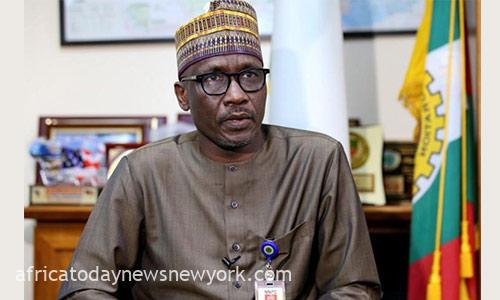The Nigerian National Petroleum Company Limited, (NNPCL) has maintained that there will not be a reversal of the policy as there is no cash back-up to offset the subsidy payment for the month of June.
This is coming in spite of the widespread outcry trailing the removal of fuel subsidy in the country.
Group chief executive officer of NNPCL, Mele Kyari, who made this known yesterday in an interview, also stated that the federal government did not provide cash backing for the budgetary allocations of N6 trillion and N3.7 trillion made for fuel subsidy in 2022 and the first half of 2023 respectively.
This is as civil society organisations (CSOs) have kicked against the abrupt removal of fuel subsidy without due consultations or provision of palliatives.
The NNPCL had on Wednesday morning officially increased fuel pump prices to between N488 and N557 per litre in different parts of the country, pegging price at N537 per litre in Abuja.
President Bola Tinubu had sparked off the fuel subsidy controversy during his inaugural address on Monday when he announced that petrol subsidy was gone, with no budgetary allocation to fund it.
Following his announcement, filling stations stopped selling petrol to motorists, awaiting the new price regime, resulting in long queues at fuel stations across the country, with several retail outlets selling the product between N600 and N800 in Lagos, Abuja, Ogun and some other states.
Read Also: Fuel Subsidy: Not A Good Start – Northern Elders Warn Tinubu
Also, talks between the federal government and organised labour over the removal of fuel subsidy ended in a deadlock on Wednesday as they failed to reach a consensus following the hike in petrol pump by oil marketers.
Speaking yesterday in an interview on Arise TV’s Morning Show which was monitored by Africa Today News, New York, Kyari said the federal government was still owing it a N2.8 trillion shortfall.
‘Actually, you can make budget, there was provision of N6 trillion in 2022, and N3.7 trillion for the half of 2023, and I can tell you that not a single naira has been funded. And by law we are required to pay taxes, royalties as a company. These are fiscal obligations, before we declare profit to our shareholders.
‘I am sure you are aware that this company is doing well; we have grown up to N607 billion profit in 2021. This is huge but you can’t make that dividend available to the shareholders because of the burden in the volume of subsidy and that volume of subsidy must be financed. “Provision in the law simply means that the government will write cheque to NNPC at the end of the month for the service we are providing to the nation. That cheque has not been written. And what we did is that we held back the fiscal obligations, despite the fact that we are holding the fiscal obligation of 2022 and half 2023, there is still a net deficit of N2.8 trillion the president should have written a cheque for us. Yes, there is a provision, but you do not have the cash to back it up and the fiscal obligation that comes with it,‘ he said.
Kyari assured Nigerians that the price of Premium Motor Spirit, known better as petrol across the country, would soon become moderate.
The NNPC boss further said that the removal of fuel subsidy will allow new entrants and investors into the downstream sector, a move that would aid competition and phase out monopoly
According to him, the removal of subsidy would allow new entrants into the market, and ultimately lead to a downward review of pump prices of petroleum across the country.
He said, ‘The beauty of this (subsidy removal) is that there will be new entrants (into the market) because oil marketing companies’ reluctance to come into the market all along is the very fact of the subsidy regime that was in place.
‘Therefore, you will see competition, even with NNPC. And by the way, by law, NNPC cannot do more than 30 per cent of the market going forward. As soon as the market stabilises, oil marketing companies are able to come in.
‘Competition will definitely come in and the market will regulate the prices itself. Therefore, this is just an instantaneous price hike. Ultimately, you’d see changes downwards and it is very likely because efficiency will come in.’
On why fuel stations hiked their pump price when they still have in stock already subsidised products, the NNPL boss said it was the reality of the market.

